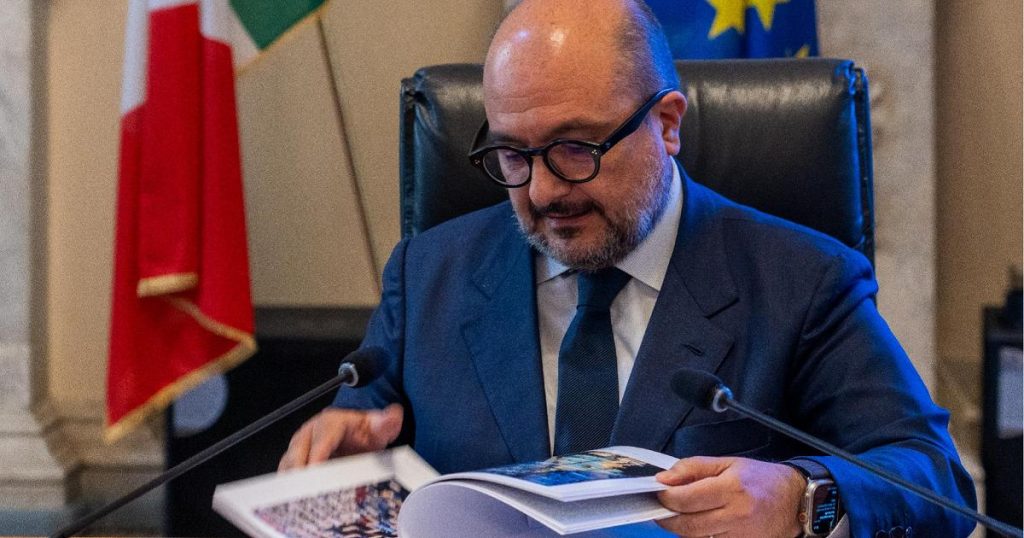Giorgia Meloni has rejected the resignation of Gennaro Sangiuliano, as stated in an interview with Tg1. Sangiuliano emphasizes that he never used any public money for Maria Rosaria Boccia, showing train tickets that he paid for with his personal credit card. He admits to having a personal relationship with Boccia, which is why he revoked her appointment. Sangiuliano insists that he is not susceptible to blackmail because he has never misused public funds. He even showed his bank statements to prove that he personally paid for their trips.
Opposition parties criticize the decision to give Sangiuliano a platform in prime time on Rai, the national public broadcaster, accusing the government of using state media for its own benefit. The Democratic Party, the Five Star Movement, and other opposition parties condemn the decision to allow Sangiuliano to defend himself on national television. They argue that critical issues should be addressed in Parliament, not on television. They call for accountability and transparency in dealing with such matters and question the integrity of the government.
Following the interview on Tg1, various politicians and media personalities express their disapproval of the government’s handling of the situation. Italy Viva leader, Matteo Renzi, criticizes the decision to address the issue on a television program rather than in Parliament. Other politicians and commentators suggest that the situation reflects poorly on the government and undermines public trust. There are calls for an investigation by judicial authorities to clarify the matter and hold those involved accountable for any wrongdoing.
During a meeting at Palazzo Chigi, Sangiuliano met with Prime Minister Giorgia Meloni to discuss the allegations surrounding his consultant, Maria Rosaria Boccia. Sangiuliano reaffirmed the truth of his statements and emphasized that no ministry funds were used for Boccia’s travel expenses. The meeting lasted over an hour, and a statement was released following the discussion. While Sangiuliano did not speak to reporters after the meeting, the Quirinale palace confirmed that there was no communication between President Sergio Mattarella and Prime Minister Giorgia Meloni regarding the issue.
The controversy revolves around the role of Maria Rosaria Boccia, who claimed to be a consultant for the Ministry of Culture, while the ministry denied this assertion. Questions arose about whether Boccia had access to classified documents and whether public funds were used for her travels alongside the minister. Despite Boccia’s claims and evidence of their interactions shared on social media, opposition parties continue to question the integrity of the government and stress the importance of transparency and accountability in public office.
In a letter to La Stampa, Sangiuliano explained that he initially considered appointing Maria Rosaria Boccia as an advisor for major events, before deciding against it due to potential conflicts of interest. He reiterated that no ministry funds were used for Boccia’s expenses, emphasizing his commitment to transparency and accountability. Boccia, on the other hand, responded on Instagram, claiming that she never paid for anything herself and was under the impression that the ministry would reimburse her expenses. The conflicting statements raise further questions about the situation and highlight the need for a thorough investigation to clarify the facts.


